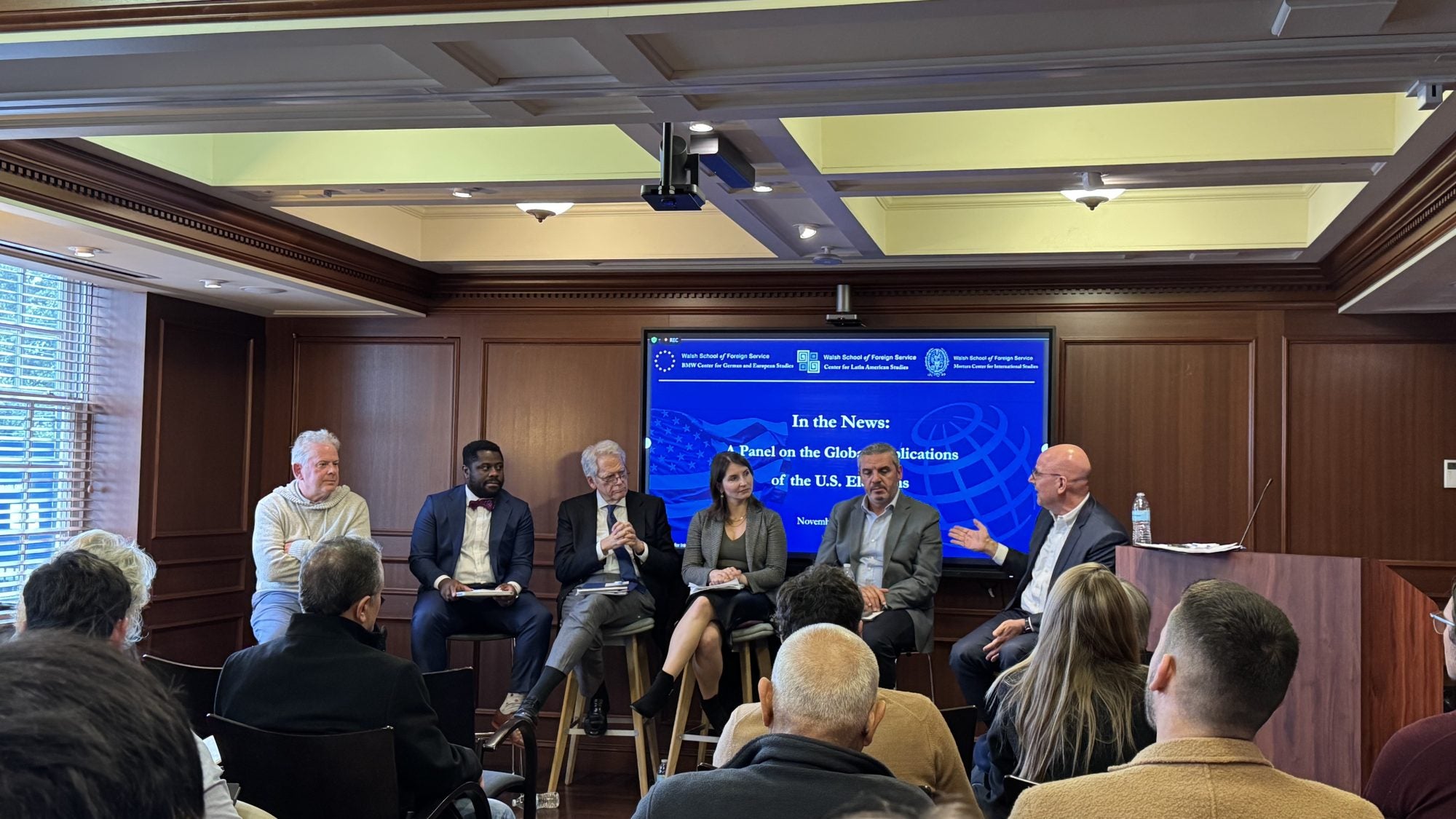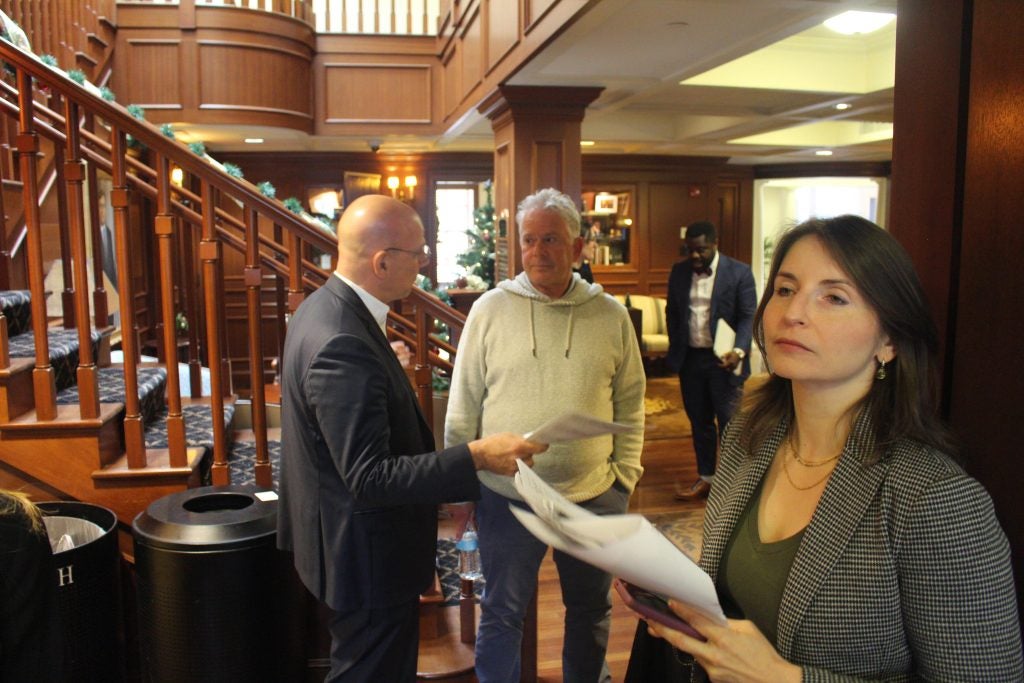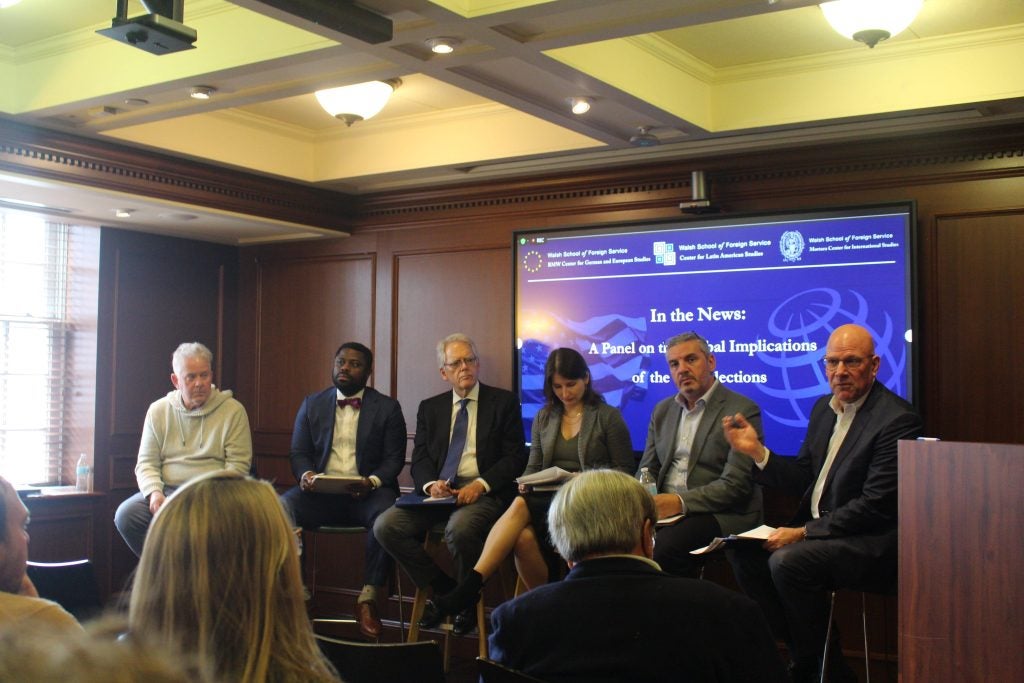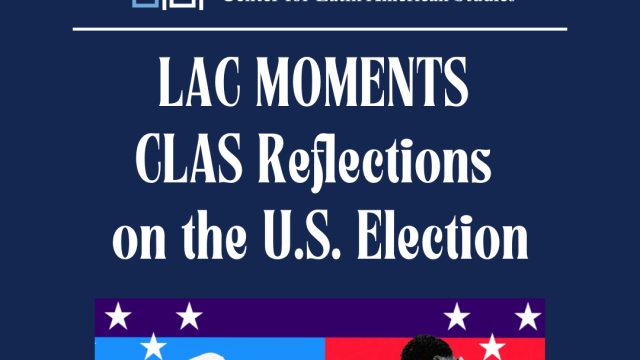On November 14, 2024, experts from the Georgetown University School of Foreign Service met at the Mortara Center for an in-depth discussion of the global implications of the 2024 U.S. Elections. Distinguished speakers from Georgetown’s African Studies Program (AfSP), Center for Contemporary Arab Studies (CCAS), Center for Eurasian, Russian, and East European Studies (CERES), Center for German and European Studies (CGES), and Center for Latin American Studies (CLAS) explored how the election results might influence international relations, policy shifts, and regional stability.
Professor Jeff Anderson (CGES) focused on the implications for U.S.-Europe relations. He emphasized that a Trump administration would likely view the European Union as an adversarial entity, pushing Europe to prioritize its strategic autonomy in security and defense. Anderson also highlighted possible deregulation policies that could benefit transatlantic business ties.
Amb. Jeff DeLaurentis (CLAS) examined U.S.-Latin America relations, noting that President-elect Trump’s policies could strain ties with Mexico due to deportations and tariffs. However, Argentina and Ecuador might see improved relations, while left-leaning governments like Brazil could face challenges. DeLaurentis underscored proposed Secretary of State Marco Rubio’s interest in the region, which could elevate its importance beyond migration and crime issues.
Professor Maria Snegovaya (CERES) provided a deep dive into U.S. policy toward Ukraine and Russia. She highlighted the divisions within the Republican Party: “Reaganists” who support Ukraine, “Prioritizers” who see China as a greater strategic concern, and “Isolationists.” Snegovaya suggested Trump might pursue negotiations with Russia, although outcomes remain uncertain.
Professor Elijah Zeyhoue (AfSP) discussed U.S.-Africa relations, noting the prevailing sentiment among U.S. policymakers that Africa is insignificant. He acknowledged President Biden’s engagement with Africa but saw no structural changes in policy. Zeyhoue explored the potential for African leaders to find common ground with President-elect Trump, as well as the broader implications of Africa’s south-south regional connections.
Professor Khaled Elgindy (CCAS) analyzed the Middle East, predicting that the Trump administration will lack a cohesive foreign policy and prioritize personal loyalty in key appointments. He anticipated heightened support for Israel, potentially leading to its annexation of the West Bank and dismantling of UN humanitarian organizations. Elgindy also discussed challenges in Iran and Lebanon, emphasizing the likelihood of a return to President-elect Trump’s maximum-pressure campaign against Iran.
Common Themes and Take-aways
Anderson suggested a common European defense policy could emerge; Zeyhoue and DeLaurentis predicted a strengthening of BRICS and alternative multilateral frameworks; Snegovaya speculated on Ukraine’s future as a buffer zone; Elgindy warned of the erosion of the rules-based international order. Also, most speakers mentioned the potential for President-elect Trump to ally with the extremist and populist leaders of their regions.
The event concluded with reflections on the potential for significant shifts in global alliances and the international system over the next four years. Given how complex the potential shifts are, no one was comfortable making predictions for what might come after President-elect Trump reaches his term limit in four years.





